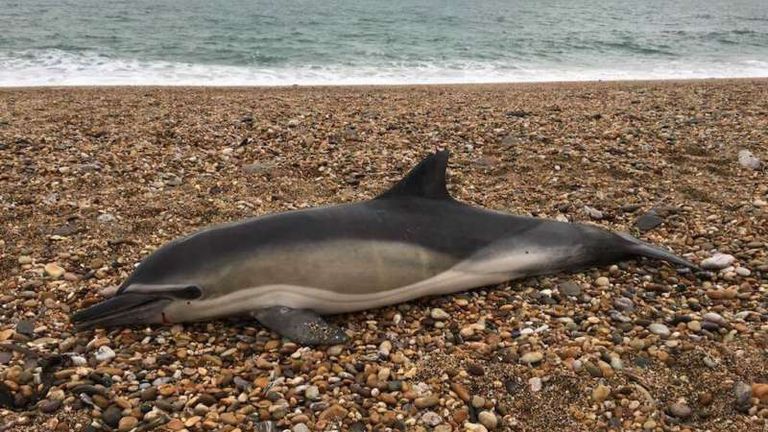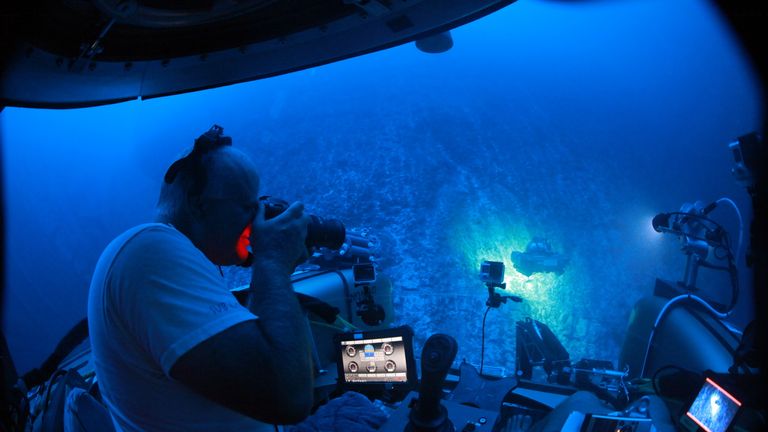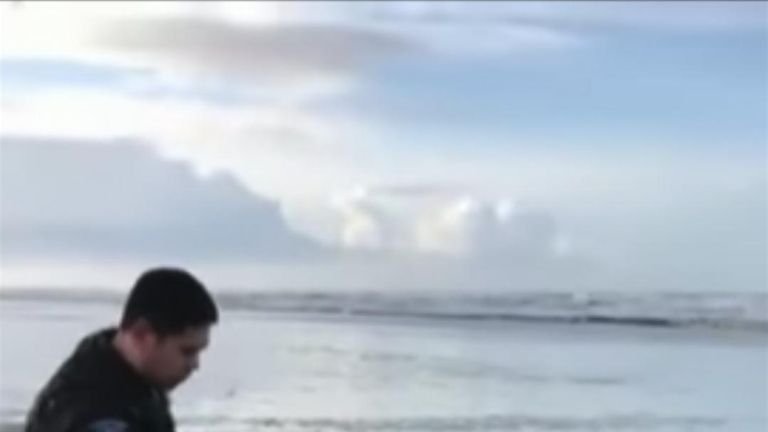Plastics found in the guts of UK's seals, dolphins and whales
The vast majority of the particles - 84% - originated from clothes, fishing nets, and toothbrushes, with the rest from packaging.
Thursday 31 January 2019 17:22, UK
Scientists have discovered that microplastics are accumulating in the guts of every marine mammal that has washed up on the shores on the UK.
In a new study published in the journal Scientific Reports, the researchers from the University of Exeter and Plymouth Marine Laboratory (PML) examined 50 carcasses.
The carcasses, which came from 10 species of seals, dolphins and whales, all contained microplastics - plastic particles smaller than 5mm - in their digestive systems.
The vast majority of the particles (84%) which the researchers discovered were synthetic fibres, originating from clothes, fishing nets and toothbrushes - while the rest were fragments from food packaging and plastic bottles.
Microplastics are known to pose a massive threat to the largest marine species.
Marine megafauna feed by filtering thousands of cubic metres of seawater a day for plankton, meaning they are also taking in the tiny particles of indigestible plastic.
The microscopic plastic particles are even being consumed by humans, and it is believed that plastic in the gut could suppress the immune system and aid the transmission of toxins and harmful bugs or viruses.
"It's shocking - but not surprising - that every animal had ingested microplastics," said the study's lead author Sarah Nelms, of the University of Exeter and PML.
"The number of particles in each animal was relatively low (average of 5.5 particles per animal), suggesting they eventually pass through the digestive system, or are regurgitated.
"We don't yet know what effects the microplastics, or the chemicals on and in them, might have on marine mammals.
"More research is needed to better understand the potential impacts on animal health."
The animals in the study had died from a number of different causes, but the ones which had died of infectious diseases were found to have a higher number of plastic particles than those which died of injuries.
"We can't draw any firm conclusions on the potential biological significance of this observation," said Professor Brendan Godley, of the Centre for Ecology and Conservation on the University of Exeter's Penryn Campus in Cornwall.
"We are at the very early stages of understanding this ubiquitous pollutant. We now have a benchmark that future studies can be compared with.
"Marine mammals are ideal sentinels of our impacts on the marine environment, as they are generally long lived and many feed high up in the food chain. Our findings are not good news."
Dr Penelope Lindeque, who heads the marine plastics research group at Plymouth Marine Laboratory, said: "It is disconcerting that we have found microplastic in the gut of every single animal we have investigated in this study.
"Indeed, from our work over the years we have found microplastic in nearly all the species of marine animals we have looked at; from tiny zooplankton at the base of the marine food web to fish larvae, turtles and now dolphins, seals and whales.
"We don't yet know the effects of these particles on marine mammals.
"Their small size means they may easily be expelled, but while microplastics are unlikely to be the main threat to these species, we are still concerned by the impact of the bacteria, viruses and contaminants carried on the plastic.
"This study provides more evidence that we all need to help reduce the amount of plastic waste released to our seas and maintain clean, healthy and productive oceans for future generations."





